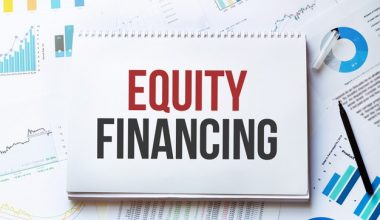In this article, we are going to be introducing different sources of finance for small businesses and also, different sources of finance for entrepreneurs.
Every business needs financing to ramp it up to profitability.
There are so many sources to consider when looking for financing.
Let’s take a deep look into the sources of financing available to businesses and entrepreneurs.
Sources of finance meaning
According to the Free dictionary, it is the provision of finance to a company to cover its short term working capital requirements and longer-term fixed assets and investments.’
They are grouped into two: Short term and Long term financing
Short term finance is obtained in the form of trade credits by suppliers, bank loans and overdrafts from commercial banks.
While long term finance is gotten from share capital, usually gotten from investors.
We will explain the both of them extensively as we proceed.
Long and short term sources of finance
Long term sources of finance
It simply means money gotten over a period of time, of more than 5 to 20 years, or more depending on other factors.
It is usually used to fund some part of a business like capital expenditure in fixed assets like plants, machinery, land, etc.
Also, part of working capital that stays permanently with a business is also funded using long term financing.
Where is long term financing gotten from?
It can be gotten from share capital, preference capital, debenture/bonds, term loans (from financial institutes, government, and commercial banks), venture funding, asset securitization and international financing.
This is a main source of finance for any company that gives investors the rights to share profits and claim on assets.
It can also be called stock, or ordinary share.
But, they all mean the same thing.
They fall under long term financing because legally they are irredeemable.
Usually, an investor has a certificate of ownership in the company and can share the net profits, plus have a residual claim over the assets of the company.
Preference shares have a fixed rate of dividend and carry preferential rights over ordinary equity shares in sharing of profits and also claims over assets of the firm.
They are neither completely similar to equity nor equivalent to debt.
That is, they have both elements of equity shares and debt.
3. Debentures / Bonds
According to Wikipedia, a debenture is a medium to long term debt instrument used by large companies to borrow money, at a fixed rate of interest.
4. Term loans
The term loan is a long term type of funding that is suitable for heavy projects that require heavy capital.
These ventures are normally financed by banks and financial institutions.
5. Venture funding
Venture funding is a funding process that occurs when an investors invests his capital in start ups that have the potential for high growth in the future.
See also: FINANCIAL GOALS 2022: The Complete Guide for Students and Businesses (+ quick tips)
Short term sources of finance
It has to do with financing for a period of less than a year.
The need for this arises to finance the current assets of a business like paying off debtors, inventory of raw material and finished goods, etc.
It is also called working capital financing.
They come in form of:
1.Trade Credit
2. Working capital loans from commercial banks
3. Fixed deposits
4. Creditors
5. Payables
6. Factoring services
7. Bill discounting etc
Sources of finance for small business
A small business has various sources of finance, and can be grouped into equity or debt financing.
Equity financing means offering a part in ownership interest in the company for finance purposes.
Debt financing, on the other hand, means the process whereby a company borrows money to pay back at a future date with interest.
Let’s take a look at some of the financing options available to small businesses:
1.Savings or owning capital
This is the number one and easiest source of finance for a small business.
When a business is in need of cash, the CEO can tap into his personal assets such as stock, mutual funds, real estate or jewelry to raise money.
2. Family and friends
Parents, siblings or friends who have excess cash to lend may be willing to fund your business.
They might also be willing to take an equity stake in the company.
3. Banks
Banks have a special department that provide loans to small businesses, although, the company will have to qualify for the banks minimum criteria.
The types of loans a bank can offer include: working capital loans, term loans, loan against property, etc.
4. Trade credit
Some small businesses might have suppliers willing to sell on credit.
The credit might last for a month, to at least three months.
5. Private equity firms
Private equity is a type of equity that is not listed on any stock exchange.
They raise funds from investors, and then use the money gotten to buy capital of promising start-ups and small businesses.
Other sources of finance for small businesses include: venture capital firms, crowd funding, personal loans and small business loans.
See also: Finance companies: Best picks for any business
Sources of finance for entrepreneurs
As a start up looking for funding, you can see below some sources of finance available to entrepreneurs
1.Crowd funding
Many thanks to social media, crowd funding is now easy to do in the 21st century.
Crowd funding is performed via an online platform where entrepreneurs offer investment opportunities.
2. Subsidies
A subsidy is a sum of money granted by the state or a public body to help an industry or business keep the price of a commodity or service low.
The aim of subsidies is to stimulate entrepreneurship, and economic growth within a certain geographical area.
3. Venture capital
Venture capital is a type of private equity that focuses on start-ups in their early stage of growth.
Usually, these venture capitalists invest their money into start-ups with a promising future.
So, if you have a solid idea, try reaching out to venture capitalists.
4. Debt financing
Banks have a department for financing small businesses.
If you can provide collateral, a bank is a good option for you.
Or, if you are looking for working capital financing, stock financing or financing to cover investments in buildings / machines, then a bank is a very good option for you.
5. Leasing
By leasing assets, companies can spread payments over a longer period of time instead of making a full payment.
Sources of finance pdf
Click here to download pdfs that will help you garner more insights about financing your businesses.
Was this article insightful? If yes, click the share button now.






